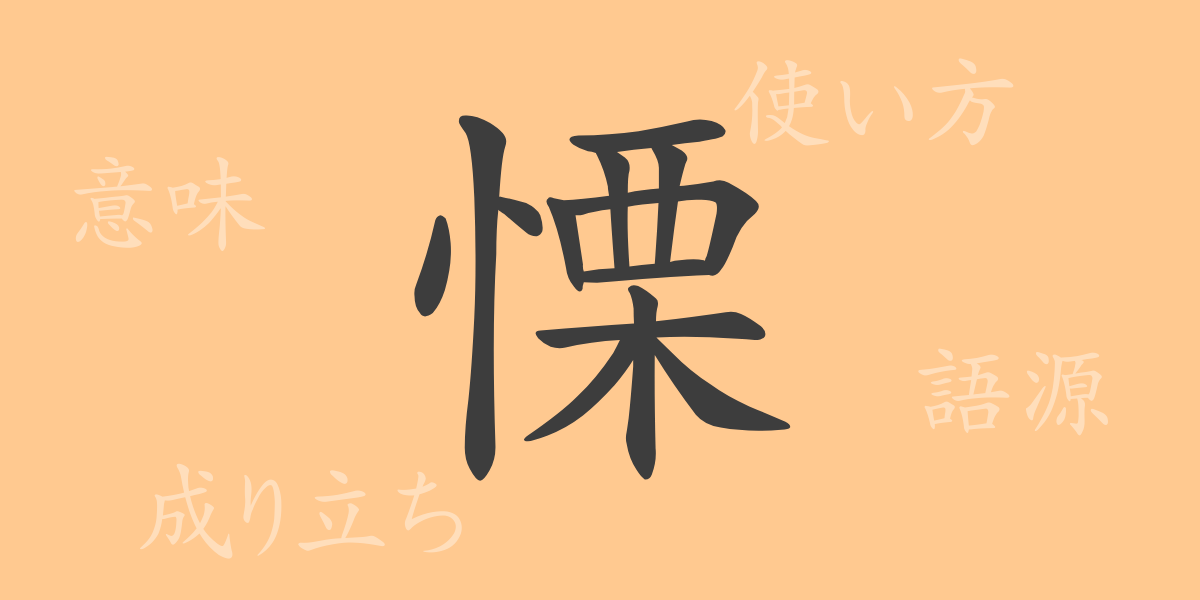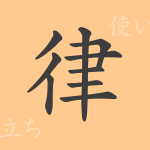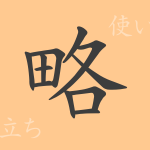In the Japanese language, there are numerous kanji characters that are exceptionally well-suited for expressing emotions and landscapes. The kanji character “慄” (ritsu) is one such character that symbolizes the rich expressive power of Japanese. In this article, we will delve into the meaning, origin, usage, and related idioms and proverbs of “慄” (ritsu), exploring the profound depth of the Japanese language.
Origin of 慄 (ritsu)
The kanji “慄” (ritsu) is composed of the radical for heart, “心” (shin), and the character “栗” (kuri), which represents sound. In ancient China, this character was used to express the state of being afraid through both sound and heart, signifying a strong emotion that makes the heart tremble. “慄” (ritsu) is found in classical Chinese literature and is one of the kanji with a long history.
Meaning and Usage of 慄 (ritsu)
The kanji “慄” (ritsu) means “to shiver” or “to tremble.” It is used to describe the state of the body trembling due to fear or cold, conveying intense emotions in literary works and everyday conversations. For example, in the sentence “彼はその場面に慄いた” (kare wa sono bamen ni ritsuita), it means that he felt a strong fear in that scene.
Reading, Stroke Count, and Radical of 慄 (ritsu)
Let’s take a closer look at the reading and structure of the kanji “慄” (ritsu).
- Reading: In On’yomi (音読み), it is read as “リツ” (ritsu), and in Kun’yomi (訓読み), it is read as “おのの.く” (onono.ku) and “ふる.える” (furu.eru).
- Stroke Count: “慄” (ritsu) has a total of 15 strokes.
- Radical: The radical is “心” (shin), representing the heart.
Idioms, Expressions, and Proverbs Using 慄 (ritsu)
Idioms, expressions, and proverbs that include “慄” (ritsu) often utilize its strong meaning for impactful expressions.
- 戦慄 (senritsu): To feel an extremely strong fear or shock. “そのニュースを聞いて戦慄した” (sono nyūsu o kiite senritsu shita) means “I was horrified to hear that news.”
- 慄然 (ritsuzan): To be extremely fearful and trembling. “慄然として逃げ出す” (ritsuzan toshite nigedasu) means “to flee in terror.”
- 身の慄く (mi no ononoku): To encounter something extremely frightening or to be so scared that one’s body trembles just by thinking about it. “その話を聞いただけで身の慄く思いがした” (sono hanashi o kiita dake de mi no ononoku omoi ga shita) means “I felt a shiver down my spine just hearing that story.”
Conclusion on 慄 (ritsu)
The kanji “慄” (ritsu) adds depth and expressiveness to the Japanese language as a character that signifies a strong emotion that makes the heart tremble. Used to describe moments of fear or surprise, “慄” (ritsu) empowers words and leaves a strong impression on the listener. We hope this article helps you understand the meaning and usage of “慄” (ritsu) and allows you to appreciate the rich expressions of the Japanese language even more.

























